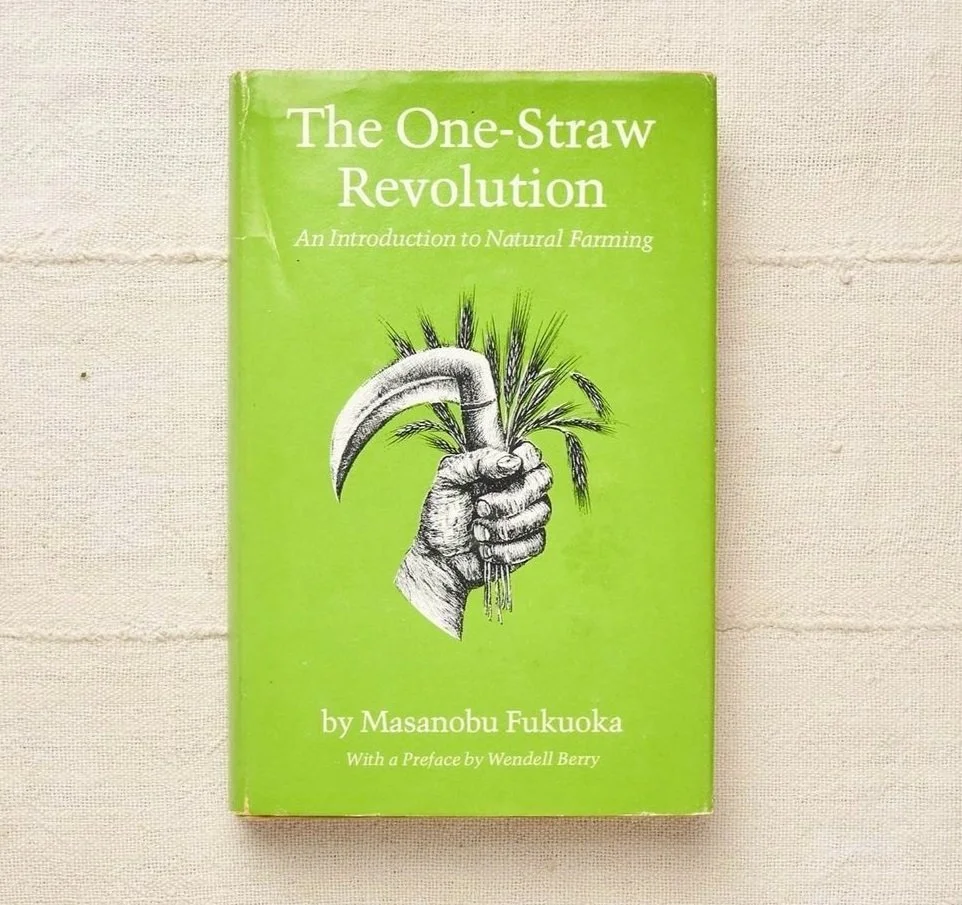Nature's Wisdom: A Review of "One-Straw Revolution" by Masanobu Fukuoka
In the fast paced rhythm of modern life, it's easy to forget the profound wisdom that lies within the simplicity of nature. Masanobu Fukuoka's "One-Straw Revolution," a timeless gem published in 1978, serves as a beacon guiding us back to the fundamental principles of natural farming. As an ecotherapist deeply passionate about reconnecting people with the healing power of the earth, Fukuoka's work resonates profoundly with me and with anyone seeking a deeper understanding of sustainable living and personal development.
Fukuoka's revolutionary insights challenge the very core of the global food system. In his pursuit of a natural approach to farming, he dared to question the prevailing wisdom of industrial agriculture. He writes, "The ultimate goal of farming is not the growing of crops, but the cultivation and perfection of human beings." This sentiment, while radical at the time, remains as relevant today as it was in 1978. Our current agricultural practices often prioritise profit over environmental sustainability and human well-being, leading to depleted soils, polluted ecosystems, and widespread health issues.
What sets Fukuoka's approach apart is his emphasis on working with nature rather than against it. His philosophy, deeply rooted in observation and intuition, advocates for a return to simplicity. By mimicking natural ecosystems and minimising human intervention, Fukuoka demonstrates how we can cultivate abundant harvests while nurturing the land. He eloquently states, "The way of natural farming is the way of human life itself."
Larry Korn, who apprenticed with Fukuoka, beautifully captures the essence of Fukuoka's teachings in his book "The One-Straw Revolution: An Introduction to Natural Farming." Korn's firsthand experience with Fukuoka enriches our understanding of the practical applications of natural farming methods. He emphasises the importance of embracing uncertainty and letting go of the illusion of control, echoing Fukuoka's belief in the interconnectedness of all life.
Wendell Berry, another visionary in the realm of sustainable agriculture, echoes Fukuoka's call for a return to harmony with nature. Berry's writings, particularly in "The Unsettling of America: Culture and Agriculture," underscore the social and ecological consequences of industrial agriculture. His advocacy for small-scale, community-centered farming aligns seamlessly with Fukuoka's vision of a more resilient and equitable food system.
The relevance of Fukuoka's teachings extends beyond agriculture; it extends to personal development and spiritual growth. By cultivating a deeper connection with the land, we nourish not only our bodies but also our souls. Fukuoka eloquently articulates this symbiotic relationship, stating, "The ultimate goal of farming is not the growing of crops, but the cultivation and perfection of human beings." In embracing the wisdom of nature, we embark on a journey of self-discovery and transformation.
In conclusion, "One-Straw Revolution" is a profound testament to the power of simplicity, observation, and intuition. Masanobu Fukuoka's timeless wisdom challenges us to rethink our relationship with the earth and embrace a more holistic approach to agriculture and life. As we navigate the complexities of the modern world, let us heed Fukuoka's call to return to the rhythms of nature and cultivate a future that is both sustainable and fulfilling.


